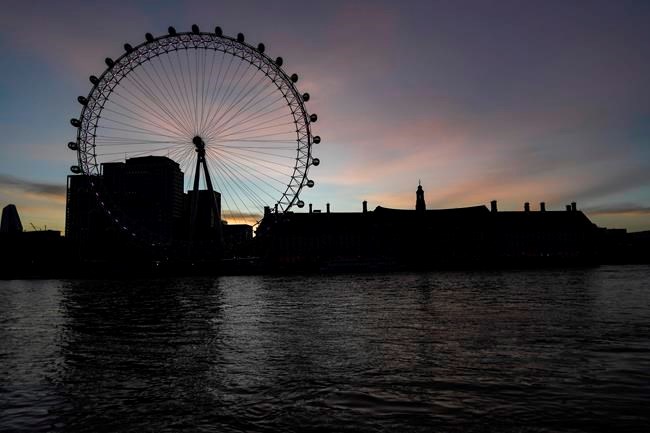LONDON — The British government is mulling fresh restrictions on everyday life in England, potentially in the big northern cities such as Liverpool and Manchester, amid mounting fears that hospitals in coronavirus hot spots may soon be overwhelmed by growing numbers of patients.
With the number of people needing to go to the hospital with virus-related conditions rising, and in some areas in the north of England alarmingly so, the pressure on the government to do more is mounting.
“We are currently considering what steps we should take, obviously taking the advice of our scientific and medical advisers, and a decision will be made shortly,” British Housing Secretary Robert Jenrick told the BBC on Thursday.
“In some parts of the country, the number of cases are rising very fast and we are taking that very seriously,” he added.
Because the virus has been accelerating at differing speeds around England, the government has opted for local restrictions to combat the spread. The differing rules though have stoked confusion and there is growing speculation the government will back a new simplified three-tier system for England soon, potentially coming into force as soon as next week.
Hot spots, notably in the big cities of northern England, such as Leeds, Liverpool, Manchester and Newcastle, could under this new system see restrictions tightened akin to the way they already have in Scotland.
Among measures coming into force in Scotland on Friday, pubs in the two biggest cities, Glasgow and Edinburgh, have been ordered to close for 16 days. Pubs in England only reopened in early July, having shut their doors to customers on March 20 as part of the wider national lockdown.
As elsewhere in Europe, restrictions have been reimposed in the U.K., which has witnessed the continent's deadliest virus outbreak, with an official death toll of 42,515.
The spike had been widely predicted in the wake of the reopening of the hospitality sector, shops and places of learning.
In many areas of northern England, national measures, such as the closure of pubs and restaurants at 10 p.m. have been augmented by tighter local actions, such as banning contact between households.
However, there is growing evidence to show that those areas that have seen additional restrictions have not experienced a slowdown in the epidemic. In some areas, the number of new infections is 10 times higher than when the localized restrictions were announced.
Many local leaders are aghast at what they say has been a lack of communication from the Conservative government over further measures that may be in the offing.
Andy Burnham, the Labour mayor of Greater Manchester, is becoming increasingly aghast at the government's lack of communication with him and the other regional leaders on the front line of the current outbreak.
“I am prepared to consider restrictions but they have to be number one, evidence-based, and they have to come with support,” he said on the BBC.
“They have to get rid of the contradictory measures that are in place; for instance, the 10 p.m. curfew, which I think contradicts local restrictions because it acts as an incentive for more gatherings in the home," he said.
The daily figures provided by the government clearly show the numbers heading in the wrong direction, from new infections through to deaths.
The latest figures on Wednesday showed another 14,162 cases, which is double the amount that was being reported the previous week. The number of people being hospitalized increased by 508 and the daily death toll rose by 70. But behind the national numbers lurk huge regional variations, which has led to calls for more concerted local actions to be taken.
The enforced closure of businesses will undoubtedly cause further economic damage to hot spots, and unions are demanding that the government accompanies any lockdown changes with a financial support package to prevent mass unemployment.
The umbrella Trades Union Congress is urging the government to announce local job retention programs, whereby it steps in to pay the lion's share of the salaries of those workers who have been forced to go idle. A national program that has helped keep a lid on unemployment in the country is due to end at the end of October.
“In areas facing high infection rates and further business closures, the government must act to preserve jobs and stop family firms going to the wall through a new local furlough scheme," the TUC's general secretary, Frances O’Grady, said.
___
Follow AP coverage of the virus outbreak at https://apnews.com/VirusOutbreak and https://apnews.com/UnderstandingtheOutbreak
Pan Pylas, The Associated Press



